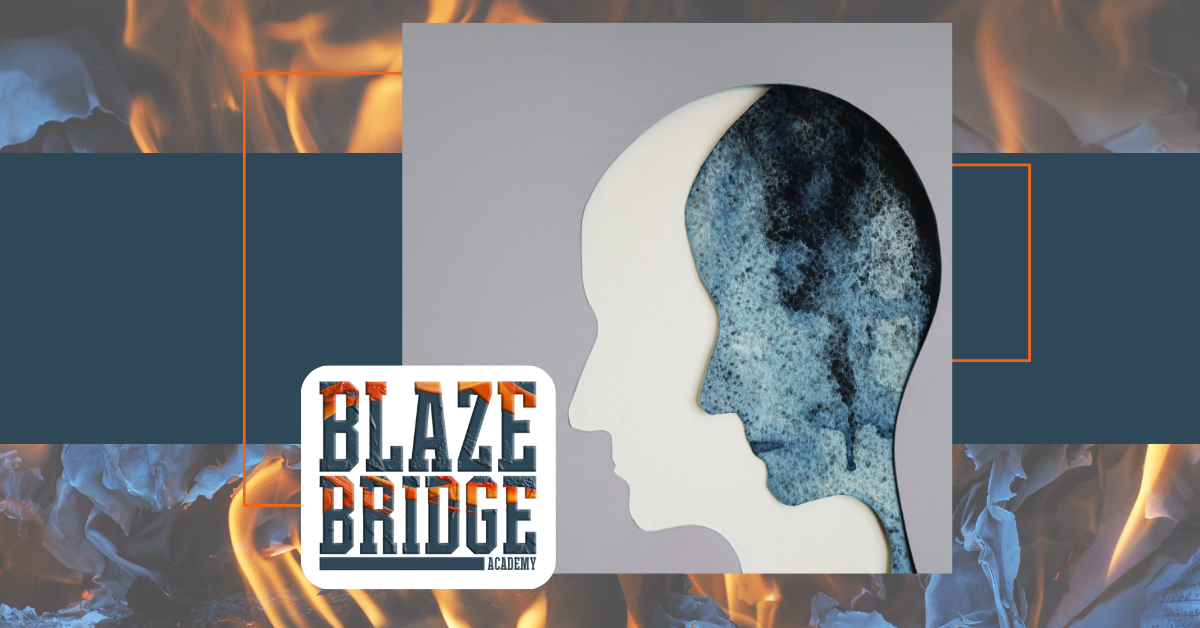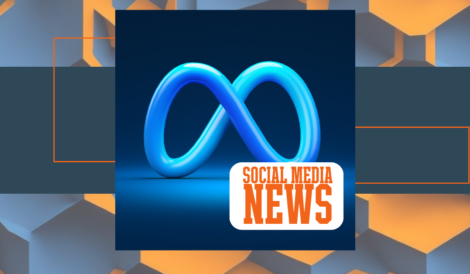Living in the digital era, where social media has become an integral part of our lives, it is essential to understand and address its impact on our mental well-being. Social media offers countless opportunities for connection, information sharing, and entertainment. However, it also presents various challenges that can negatively affect our mental health.
Understanding the Impact of Social Media on Mental Health
One significant negative influence of social media is the Fear Of Missing Out (FOMO) and the “Always On” culture it fosters. Constantly seeing others’ highlight reels and comparing our lives to their curated online personas can lead to feelings of inadequacy, loneliness, and anxiety.
Moreover, the prevalence of negative news and conflict on social media can take a toll on our mental well-being. Constant exposure to distressing content can increase stress levels and contribute to feelings of helplessness or despair.
Additionally, the excessive screen time that social media often encourages can have detrimental effects on mental health. Spending excessive hours scrolling through feeds can lead to sleep disturbances, reduced productivity, and increased feelings of restlessness or irritability.
However, it is important to note that social media can also have positive effects on mental health. For example, online support groups and communities can provide a sense of belonging and connection for individuals who may feel isolated in their day-to-day lives. These platforms allow people to share their experiences, seek advice, and find comfort in knowing that they are not alone in their struggles.
Furthermore, social media can be a powerful tool for raising awareness about mental health issues and promoting mental health advocacy. Many organizations and individuals use social media platforms to share resources, spread awareness, and encourage open conversations about mental health. This increased visibility and accessibility can help reduce stigma surrounding mental health and encourage individuals to seek help when needed.
In addition, social media can serve as a platform for self-expression and creativity. Many individuals use social media to showcase their artwork, writing, or other creative endeavors, which can be a source of fulfillment and empowerment. This outlet allows individuals to share their passions and connect with like-minded individuals who appreciate and support their work.
Moreover, social media can provide a sense of inspiration and motivation. Seeing others achieve their goals or pursue their passions can serve as a source of encouragement for individuals who may be feeling stuck or unmotivated. Social media platforms can be a space for individuals to find role models, mentors, and communities that inspire them to pursue their own dreams and aspirations.
It is important to approach social media with a balanced perspective and set healthy boundaries. Taking breaks from social media, limiting screen time, and engaging in offline activities can help maintain a healthy relationship with these platforms. Additionally, being mindful of the content we consume and curating our online experiences to prioritize positive and uplifting content can contribute to a healthier mental well-being.
The Positive Role of Social Media in Mental Health
While the negative impact of social media on mental health is undeniable, it is crucial to acknowledge the positive role it can play as well. Social media provides a platform for raising awareness and supporting causes, allowing individuals to be part of meaningful social change and contribute to making a difference in the world.
One way in which social media can positively impact mental health is by providing a space for individuals to share their personal stories and experiences. By sharing their struggles and triumphs, people can find solace in knowing that they are not alone in their journey. This sense of community and support can be incredibly powerful in promoting mental well-being.
Furthermore, social media assists in building communities and nurturing relationships, especially for those who may not have access to a strong support system in their immediate surroundings. Being able to connect with like-minded individuals and engage in supportive online communities can significantly benefit mental well-being.
For example, individuals who are living with rare mental health conditions may find it difficult to find others who can relate to their experiences. Through social media, they can connect with others who are going through similar challenges, providing a sense of understanding and validation that may be lacking in their offline lives.
In addition, social media allows for connecting and learning beyond geographic boundaries. It opens doors to diverse perspectives, educational resources, and opportunities for personal growth, expanding our horizons and broadening our understanding of the world.
For instance, individuals struggling with anxiety disorders may find it difficult to engage in face-to-face social interactions. Social media platforms provide a safe space for them to connect with others, share coping strategies, and gain support without the pressure of in-person interactions. This virtual support network can be a lifeline for those who may otherwise feel isolated and alone.
Moreover, social media can be a valuable tool for mental health professionals and organizations. They can use these platforms to disseminate information, share resources, and provide guidance to individuals seeking help. This accessibility can break down barriers to mental health care and reach individuals who may not have access to traditional forms of support.
In conclusion, while it is important to recognize the negative impact of social media on mental health, it is equally important to acknowledge the positive role it can play. From fostering a sense of community and support to providing educational resources and breaking down barriers to care, social media has the potential to be a powerful tool in promoting mental well-being.
Prioritizing Mental Health as a Social Media Professional
Working in the fast-paced and ever-evolving social media industry can be both exciting and demanding. As social media professionals, it is crucial to prioritize our mental well-being to ensure long-term success and fulfillment in our careers. While the digital world offers endless opportunities for growth and connection, it can also be overwhelming and mentally draining if not managed properly.
One effective way to achieve a healthy work-life balance is by setting boundaries and limits. Designating specific times to disconnect from work-related activities and engage in self-care activities can help prevent burnout and maintain mental well-being. Whether it’s turning off notifications after a certain hour or scheduling regular breaks throughout the day, creating a clear separation between work and personal life is essential.
Collaborating and seeking support from your team can also be highly beneficial. The social media industry can be intense, and the pressure to constantly deliver engaging content can take a toll on our mental health. Sharing challenges and concerns with colleagues who understand the unique demands of the industry can provide a sense of camaraderie and alleviate stress. Together, you can brainstorm solutions, offer advice, and support each other through the ups and downs of the digital landscape.
Moreover, infusing personality into your professional presence on social media can contribute to improved mental well-being. In a world where metrics like likes and followers often dictate success, it’s easy to lose sight of our authentic selves. However, embracing authenticity allows for more meaningful connections and fosters a sense of identity and self-worth beyond the numbers. By sharing personal stories, opinions, and experiences, you not only engage your audience but also nurture your own mental well-being.
Breaking down tasks into manageable chunks and prioritizing them based on their impact can also alleviate mental strain. The social media industry is known for its fast-paced nature, with multiple projects and deadlines constantly vying for our attention. However, trying to tackle everything at once can lead to overwhelm and decreased productivity. By focusing on one task at a time and completing it before moving on to the next, you can reduce stress and improve your overall mental management. This approach allows you to give each task the attention it deserves, leading to better quality work and a more balanced mindset.
Lastly, incorporating physical movement into your routine can support mental well-being. Sitting at a desk for long hours, scrolling through screens, and constantly being connected can take a toll on our bodies and minds. Engaging in regular exercise or taking short breaks to stretch and move can reduce stress levels, increase energy, and improve focus. Whether it’s going for a walk, practicing yoga, or hitting the gym, finding a physical activity that you enjoy can have a profound impact on your mental health.
In conclusion, prioritizing mental health as a social media professional is crucial for long-term success and well-being. By setting boundaries, seeking support, embracing authenticity, managing tasks effectively, and incorporating physical movement, we can navigate the demands of the industry while maintaining our mental well-being. Remember, taking care of ourselves is not only essential for our own happiness but also for the quality of the content we create and the connections we make in the digital world.
Tips for a Healthier Personal Social Media Experience
While navigating social media, it is crucial to prioritize your personal well-being. One essential tip is to keep your personal social media truly personal. Resist the urge to compare yourself to others and remember that social media is a highlight reel, not an accurate representation of reality.
When it comes to comparing ourselves to others on social media, it’s important to remember that what we see is often carefully curated and edited. People tend to share the best moments of their lives, the highlights that make them look good. But behind those perfectly filtered photos and well-crafted captions, there’s a whole world of imperfections and struggles that we don’t see. So, instead of comparing ourselves to others, let’s focus on our own journey and celebrate our own accomplishments, no matter how small they may seem.
In addition to keeping our personal social media truly personal, it is vital to curate our social media feed intentionally. Following accounts that uplift and inspire us can have a positive impact on our mental well-being. Whether it’s following motivational speakers, artists, or nature photographers, surrounding ourselves with content that brings us joy and inspiration can help us stay motivated and focused on our own goals.
On the other hand, it’s equally important to unfollow or mute accounts that evoke negative emotions or comparisons. Sometimes, we find ourselves following accounts that make us feel inadequate or unhappy. It could be a friend who constantly posts about their luxurious vacations or a celebrity whose seemingly perfect life makes us question our own choices. In such cases, it’s perfectly okay to hit that unfollow button. Remember, social media should be a space where we feel good about ourselves and find positivity, not a source of negativity or self-doubt.
Furthermore, limiting our screen time and practicing digital detoxes regularly can have a significant impact on our mental health. It’s easy to get lost in the endless scrolling and mindless browsing, but spending excessive time on social media can lead to feelings of anxiety, loneliness, and even depression. Setting boundaries around the time we spend on social media can help us regain control over our lives and prioritize activities that truly matter to us.
During a digital detox, we can take a break from social media altogether or limit our usage to a specific time of the day. This break allows us to reconnect with ourselves, focus on our goals, and engage in activities that bring us joy and fulfillment. Whether it’s reading a book, going for a walk in nature, or spending quality time with loved ones, taking a step back from social media can help us create a more balanced and fulfilling life.
Finally, it’s essential to prioritize offline connections and activities. While social media can be a great tool for staying connected with friends and family, nothing can replace the value of face-to-face interactions. Engaging in hobbies, pursuing our passions, and spending quality time with loved ones can provide a sense of fulfillment and happiness that social media often fails to deliver.
So, let’s remember to strike a balance between our online and offline lives. While social media can be a valuable source of inspiration and connection, it’s important not to let it consume our entire existence. By prioritizing our personal well-being, curating our social media feed intentionally, limiting screen time, and focusing on offline connections and activities, we can create a healthier and more fulfilling personal social media experience.
Conclusion
Maintaining mental well-being in the age of social media requires awareness, intentionality, and self-care. Understanding the impact social media can have on our mental health empowers us to navigate it more mindfully. By acknowledging both the positive and negative aspects of social media, setting boundaries, and prioritizing our mental health, we can create a healthier relationship with these powerful platforms. Remember, your mental well-being deserves attention, both on and off-screen.




